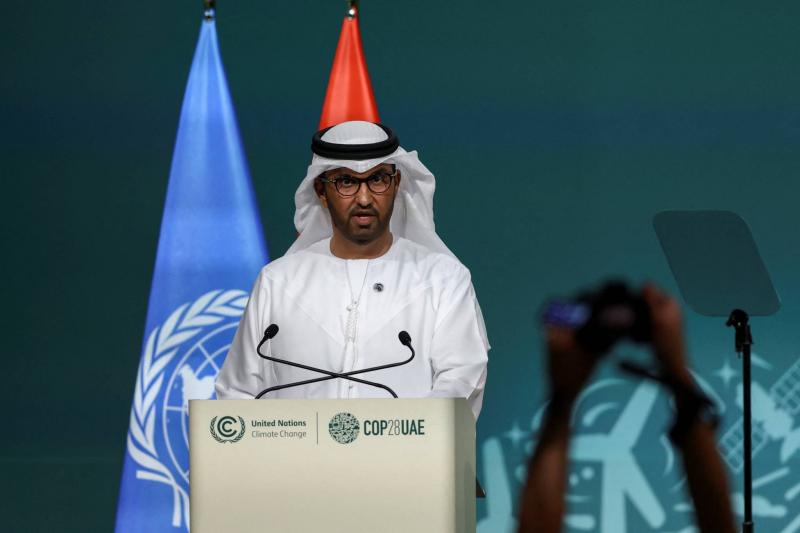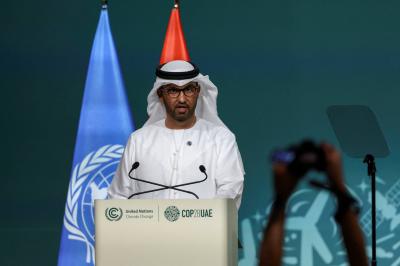Countries participating in the United Nations Climate Change Conference COP28 officially agreed on a new fund to address climate disasters today, Thursday. The agreement was adopted following the conference's opening ceremony, amid enthusiastic applause from delegates. Representatives from both developed and developing countries painstakingly crafted the agreement during this year's negotiations. The fund will assist countries vulnerable to the repercussions of climate change, such as droughts, floods, and rising sea levels, in managing the associated costs.
COP28 President Sultan Al Jaber opened this year's UN climate conference, urging countries to find common ground on policies aimed at achieving global climate goals. Al Jaber, who is also the CEO of the Abu Dhabi National Oil Company (ADNOC), acknowledged in a transcript of his opening speech that there are “strong viewpoints regarding the idea of including wording on fossil fuels and renewable energy sources in the negotiating text... I urge you to work together.” He noted that “many national oil companies have adopted net-zero carbon emissions targets for 2050.” Al Jaber expressed gratitude that they stepped up to join “this game-changing journey,” stating that “this is not enough, and I know they can do more.”
As a result, UAE Foreign Minister Sheikh Abdullah bin Zayed announced today that “his country will contribute $100 million to the climate disaster fund arrangements.” He congratulated all parties on the social media platform X after the COP28 officially approved the climate disaster fund arrangements, stating, “It is important to provide an effective response to the impacts of climate change... We are pleased to announce the UAE’s contribution of $100 million, and we call upon all capable nations to contribute to these efforts and embody the spirit of human solidarity.”
Leaders from countries including Denmark and the Netherlands are expected to announce their contributions in the coming days. The European Union has pledged to make a “significant” contribution, but it wants countries whose economies have prospered in recent decades, such as China, to follow suit. EU Climate Commissioner Wopke Hoekstra mentioned that “everyone who has the ability to pay should contribute,” adding that he wants to “expand the donor base beyond where attention is usually focused, simply because this reflects the reality in 2023.”
Adnan Amin, the conference's CEO, told Reuters that “the goal is to secure several hundred million dollars for the loss and damage fund during the event,” highlighting hopes for UAE contributions. Samoa's ambassador to Europe, Pauli Luteru, who is also the chair of the negotiating bloc for Small Island Developing States, stated, “We cannot rest until this fund is sufficiently financed and actually begins to relieve the burden on vulnerable communities.”
Another key task at the summit is for countries to assess the progress made in achieving global climate goals, foremost among them the Paris Agreement's objective of limiting global warming to less than two degrees Celsius. This process, known as the “global stocktake,” is expected to yield a high-level plan informing countries of what they need to do.




